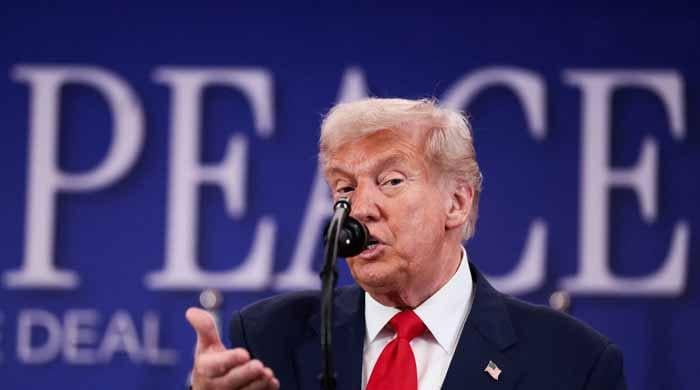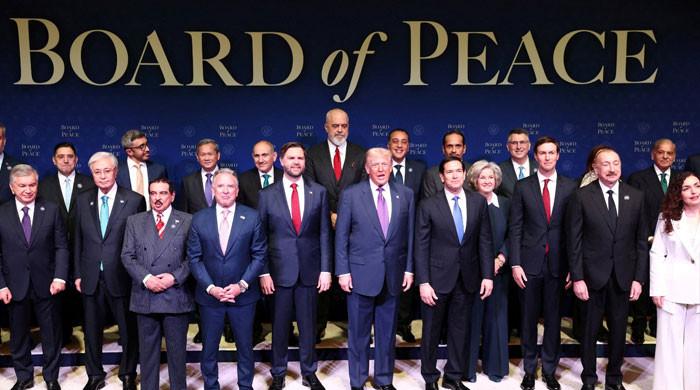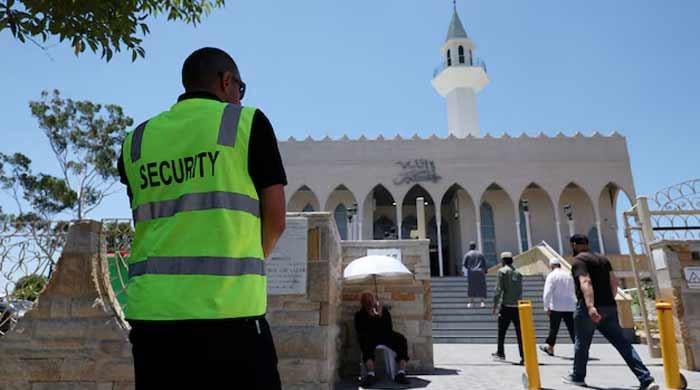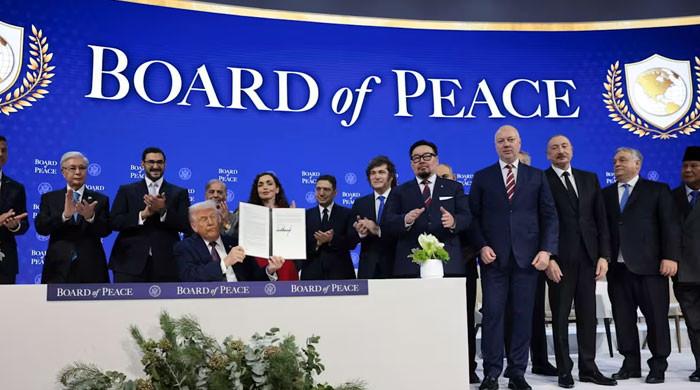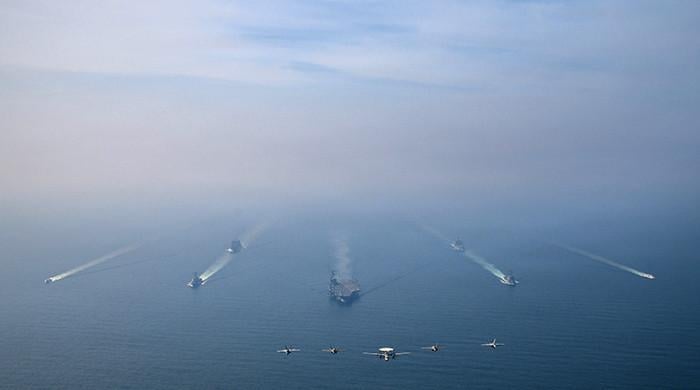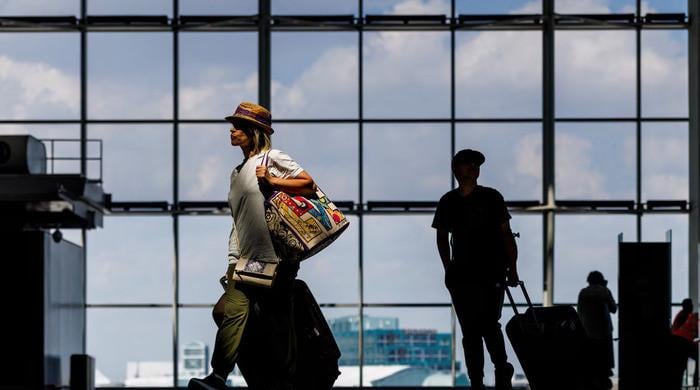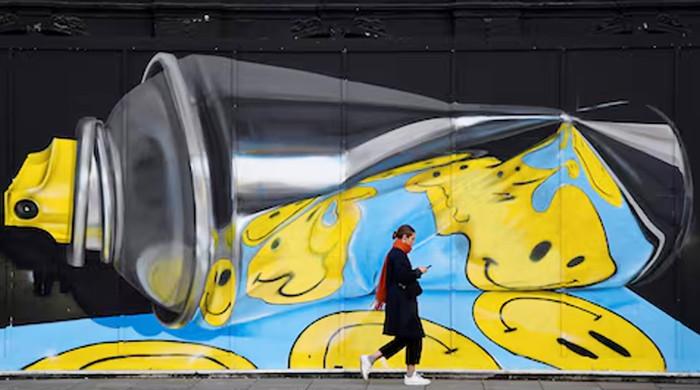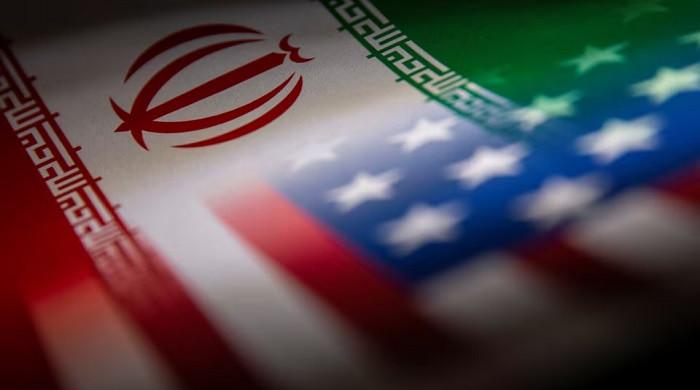No need to wear masks unless you are sick or caring for coronavirus patients, says WHO
Dr Maria Van Kerkhove — an infectious disease expert — says it's crucial to "prioritize the use of masks for those who need it most"
March 31, 2020
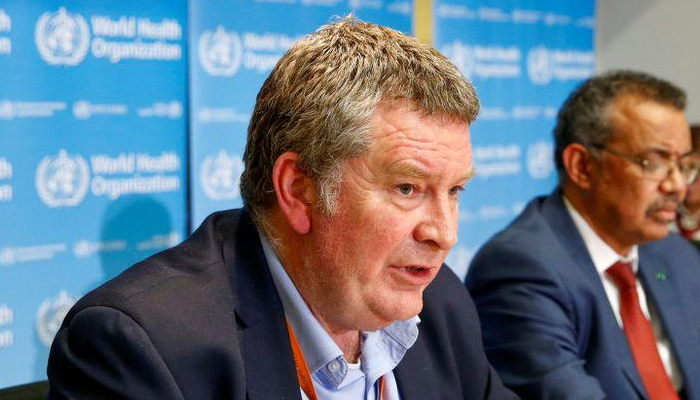
GENEVA: The World Health Organization (WHO) on Tuesday reiterated its advice to people to not wear face masks if they were either not infected by the coronavirus or not caring for a COVID-19 patient.
In a media briefing, the WHO emergencies program executive director Dr Mike Ryan said there was "no specific evidence to suggest that the wearing of masks by the mass population has any potential benefit".
"In fact, there's some evidence to suggest the opposite in the misuse of wearing a mask properly or fitting it properly," he added. "There also is the issue that we have a massive global shortage."
Also read: China-donated face masks, N-95 respirators, arrive in Pakistan
Dr Ryan, a former trauma surgeon who has worked very closely with patients during Ebola outbreaks, stressed that people most at risk were those working at the frontline.
"Frontline health workers [...] are exposed to the virus every second of every day. The thought of them not having masks is horrific," he added.
Dr Maria Van Kerkhove — an infectious disease expert and the WHO top official's colleague — echoed Dr Ryan's comments, saying it was crucial to "prioritize the use of masks for those who need it most".
"In the community, we do not recommend the use of wearing masks unless you yourself are sick and as a measure to prevent onward spread from you if you are ill," Dr Van Kerkhove noted, adding that masks were only suggested for those who were sick and in self-quarantine or those living with coronavirus-positive patients and caring for them.
Last week, she had emphasised on the dearth of medical gear for healthcare professionals.
"The world is facing a significant shortage of personal protective equipment (PPE) for our frontline workers — including masks and gloves and gowns and face shields — and protecting our health care workers must be the top priority for use of this PPE."
No word on PPE, ventilator shortage
In Pakistan, however, Sindh government spokesperson Murtaza Wahab on Monday had expressed disappointment that Prime Minister Imran Khan failed to provide a roadmap to deal with the prevalent coronavirus crisis during his address to the nation.
Senator Wahab had commented on how the premier "should have informed the nation about how he plans to control" the pandemic.
Read more: 'Save doctors to save patients'
“Unfortunately, there was no mention of any such thing. More than corona tigers, our country needs vents & protective gear for medical staff,” Wahab had added.
So far, Pakistan has only banned the export of protective gear in bid to tackle coronavirus, with the trade ministry saying the ban extended to N95, surgical, and other face masks, as well as hand sanitisers, bio-hazard bags, goggles, disposable gloves, and gowns.
A recent report had highlighted the Pakistani frontline medics' fear and anxiety over being compelled to treat patients potentially infected with the COVID-19 virus without PPE, which includes N95 masks, Tyvek suits, gloves, face shields or masks, and goggles.
Related: Shah approves purchase of new coronavirus testing machines, PPE
Over the past week, tonnes of doctors, paramedics, and healthcare workers at various medical facilities across Karachi were advised to self-quarantine after they came into contact with patients and doctors who had later tested positive for COVID-19.
On the other hand, as the number of cases rise across the country and with a significant shortage of resources to cope with the pandemic, Sindh Chief Minister Murad Ali Shah had approved the purchase of 290 ventilators.




